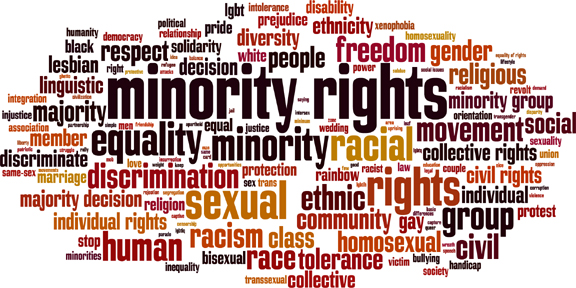In a new article, Christopher Claassen provides evidence that supports a theory that public opinion reacts to government policies by moving in the opposite direction.1 That is, if the public perceives that policy has shifted too far in one direction (conservative or liberal), their preference is for it to go in the other direction—like a thermostat. Claassen shows that the thermostatic theory also applies to a nation’s “mood” for democracy. The most concerning conclusion of the study is that what taints mass public support for democracy is when it translates to the protection of minority rights. In other words, the attitude that democracy is good when it applies to us (meaning the majority in power), but not them (disenfranchised groups) seems to dominate across the globe.
Most people probably are not aware of the thermostatic theory but likely heard of the pendulum effect, which states that “trends in culture, politics, etc., tend to swing back and forth between opposite extremes.”2 The thermostatic theory is one explanation for the pendulum effect. The idea of the ideal middle ground in different contexts can also be seen in Aristotle’s golden mean, the dialectic method, and Buddhism.
The article’s author analyzed existing democracy indexes and surveys of democratic mood across 135 countries and up to 30 years. The data went into a robust model that produced the figure below, which shows what occurs when the level of democracy increases by one standard deviation.

As demonstrated by the plot, democratic mood levels drop immediately as democracy increases. Encouragingly, however, in the long-term, the trend is that approval for democratic norms returns to its former levels within a generation.
How does the study’s author explain the drop in support for democratic ideals as democratic institutions improve? Claassen disaggregated levels of democracy between the strength of elected bodies who represent the will of the majority, and those of the courts and other institutions and processes that protect the rights of minorities and restrain the strength of the executive branch. What the data showed was that support for democratic systems declined as minority rights improve, and as the power of the executive is constrained. The effect was not evident when institutions supporting majority rights were strengthened.
The findings corroborate other studies that show that extending democratic rights and legal protections to minorities is the most unappetizing and challenging aspect of democracy for many citizens.3 That the public tends to respond favorably to ethnonationalism after dramatic expansion of human rights to the formerly disenfranchised explains the rise of Trump in America, Erdoğan in Turkey, and Modi in India. The study’s discovery that attitudes about democratic ideals take a generation to recover after the expansion of rights to oppressed groups makes sense. The change that aggrieved the prior generation is merely the status quo to the cohort who grew up after it.
Until the masses understand that equal rights for others do not mean fewer rights for them, a lesson I take from the study is that whenever possible, reform should come from the electorate, and not the judiciary. While in principle, rights exist a priori, and not something the electorate should be able to vote for or against, in practice, they should arise as being recognized as such by the public. When rights are expanded by non-elected bodies such as the courts, nations risk a backlash that could put their democracies in peril.
1Claassen, C. 2020. In the Mood for Democracy? Democratic Support as Thermostatic Opinion. American Political Science Review, 114(1), 36-53. doi:10.1017/S0003055419000558
2 See Dictionary.com
3Gibson, James L. 2008. Intolerance and Political Repression in the United States: A Half Century after McCarthyism. American Journal of Political Science 52 (1): 96–108.




Does this explain then the backlash against Roe v Wade and the Marriage Equality decisions?
I think it does explain the backlash against those landmark supreme court decisions. Certainly, the expansion of LGBTQ rights to point of recognizing marriage equality shocked much of mainstream America who now feels marginalized and like they do not recognize their own country anymore.